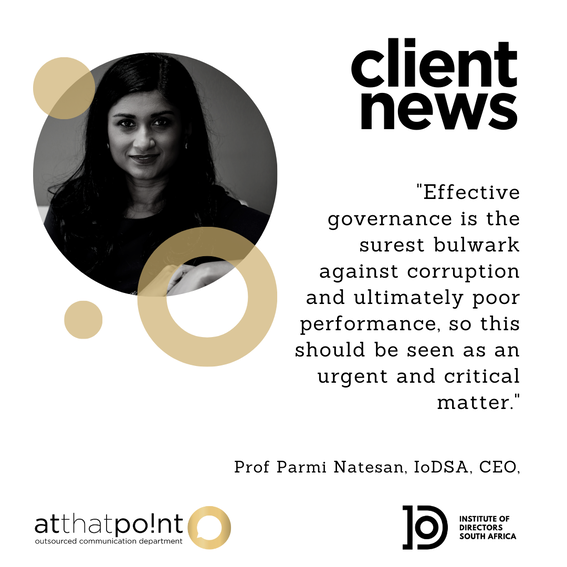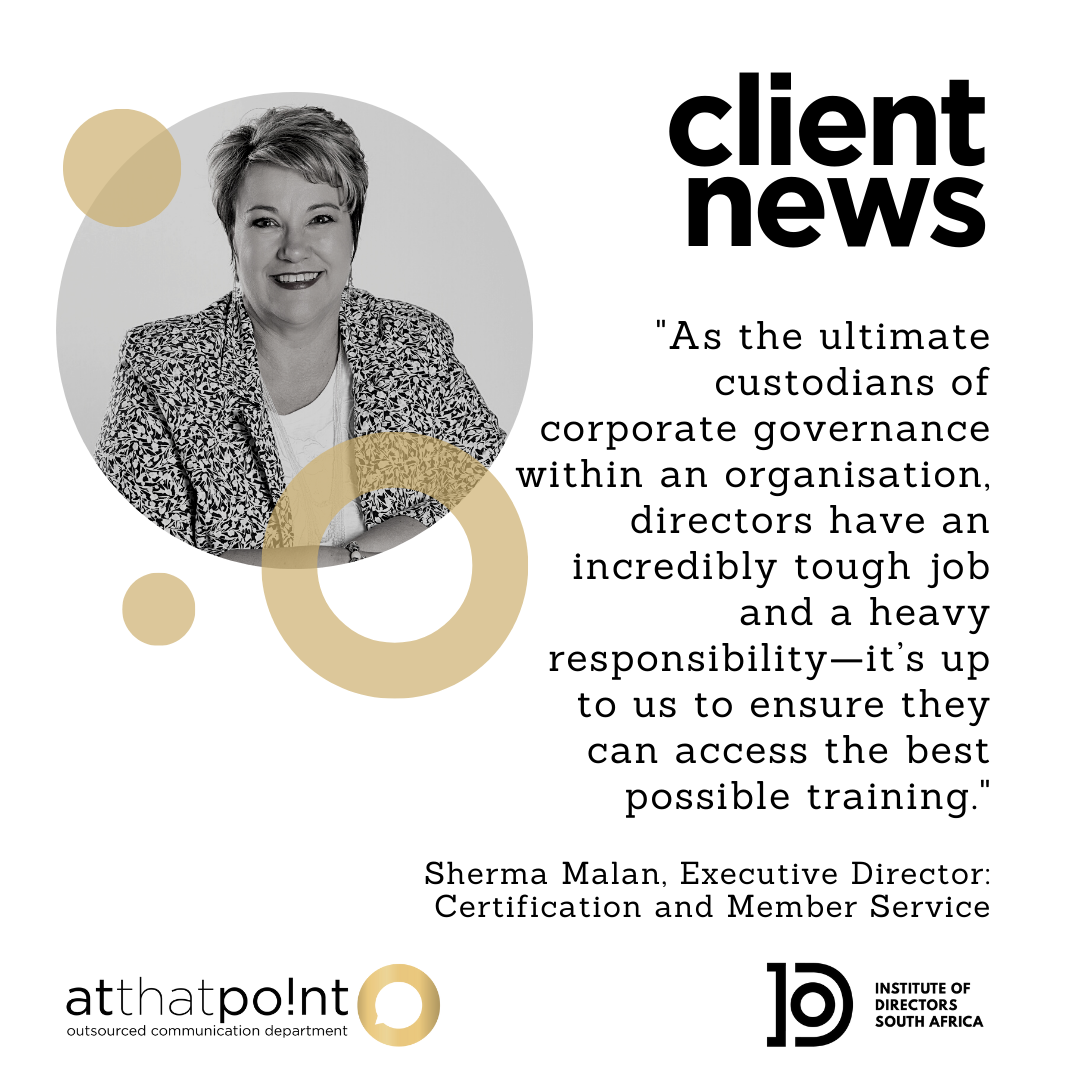|
According to a recent news report, the Minister of Higher Education, Blade Nzimande, is considering a legal review of the governance frameworks at South Africa’s universities in order to stem the rising tide of corruption and mismanagement at these institutions. Professor Parmi Natesan, CEO of the Institute of Directors in South Africa (IoDSA) says that the Department can rely on King IV to help him put the necessary governance reforms in place.
“King IV was drafted to be applicable to all types of organisations. Because it is outcomes-based, King IV is flexible—it’s not about following a rigid template but rather taking appropriate actions that will lead to the desired end results,” she says. “While it’s a voluntary code, it is considered governance best practice and it would thus make sense for the Minister to rely on it to guide his actions in reforming governance in the university space. The Department’s own ‘Guidelines for Good Governance Practice’ is also an excellent resource.” The Minister is reported as being particularly concerned about several issues that have repeatedly cropped up in university assessors’ reports. Professor Natesan makes the following comments on these specific areas of concern: Lack of skills and experience of members of university councils. Lack of skill and experience, especially as regards governance best practice and serving as a director, is one that affects many organisations, especially in the public sector. The IoDSA has long since identified the need to build up a talent pool of professional directors who combine their existing sector knowledge and experience with a comprehensive set of directorial competencies. The Institute developed a Director Competency Framework to help the public understand what is needed to serve as a director, and to help prospective directors acquire and maintain these skills via its training programmes. It has also created two SAQA-recognised professional designations for directors. Individuals guilty of transgressions at one university find employment at others. As the ultimate governance custodian, the university council has to ensure that succession planning for senior roles is in place, and that a transparent nominations and thorough due-diligence process is developed and mandated. This due diligence should delve into candidate’s prior track record and reputation prior to appointment. Entrenchment of corruption. Principle 1 of King IV (“The governing body should lead ethically and effectively“) makes it clear that the university council should take collective responsibility for the university’s overall performance and must be held accountable for the execution of its responsibilities. As regards corruption, particularly in the university’s supply chain, it is clearly the council’s responsibility to ensure that effective checks and balances are in place, and are constantly monitored. The council should clearly set the tone of the organisation, which should include zero tolerance for unethical behaviour. “Effective governance is the surest bulwark against corruption and ultimately poor performance, so this should be seen as an urgent and critical matter,” she says. “As the owner of the King Reports and advocate for governance, the IoDSA stands ready to assist the Department with recommendations if needed.” ENDS MEDIA CONTACT: Stephné du Toit, [email protected], 084 587 9933, www.atthatpoint.co.za For more information on the IoDSA please visit: Website: www.iodsa.co.za Twitter: @The_IoDSA LinkedIn: Institute of Directors South Africa Company Page Facebook: Institute of Directors South Africa
0 Comments
The Institute of Directors in South Africa (IoDSA) has been named Most Innovative Corporate Governance Training Institute for 2023 (UK) by Global Brands magazine. Sherma Malan, Executive Director: Certification and Member Services at the IoDSA, says the award is a welcome recognition of the quality of training the Institute offers, and thus its contribution to creating and expanding the country’s directorial talent pool.
“We are particularly proud of our designation as an innovative training provider because we have put so much effort into offering directors and would-be directors training that really does prepare them for what has become a very fast-moving and demanding profession,” she says. “The IoDSA is 60 years old, but that legacy is built on our forward-looking stance. As the ultimate custodians of corporate governance within an organisation, directors have an incredibly tough job and a heavy responsibility—it’s up to us to ensure they can access the best possible training to prepare them for their important role.” The IoDSA is the only professional body for directors in South Africa that is recognised by the South African Qualifications Authority, which means that its training not only meets stringent quality controls but can also earn delegates CPD (continuous professional development points). The IoDSA has been spearheading the professionalisation of directorship in response to the key role directors play in guiding organisations to success, and their potential exposure to personal liability for breaching their fiduciary duties. The IoDSA has introduced two professional director designations, Certified Director and Chartered Director, to provide an objective, rigorous framework within which directors can obtain and maintain the necessary corporate governance skills, aligned with the IoDSA’s Director Competency Framework. Malan says that as a non-profit, the IoDSA can plough all its profits back into the organisation, ensuring it maintains standards and can play a significant role in advocating for corporate governance and directorship in South Africa. It also owns the King Report on Corporate Governance for South Africa, and provides secretarial services to the King Committee. The King Reports are recognised as global standard bearers for corporate governance. An important differentiator for the IoDSA’s director training is that it is provided by a world-class faculty that comprises only serving directors with local and international board experience. The majority of the faculty are Chartered Directors. “As the Zondo Commission’s reports clearly showed, directors are in the frontline of the fight against corruption, and an organisation’s performance directly correlates to the quality of its board,” Malan concludes. “The IoDSA’s training and its Directorship Competency Framework, along with its two professional designations, offer directors and would-be directors with the best possible training to achieve their potential.” ENDS MEDIA CONTACT: Stephné du Toit, [email protected], 084 587 9933, www.atthatpoint.co.za For more information on the IoDSA please visit: Website: www.iodsa.co.za Twitter: @The_IoDSA LinkedIn: Institute of Directors South Africa Company Page Facebook: Institute of Directors South Africa |
Archives
July 2024
Categories
All
|



 RSS Feed
RSS Feed